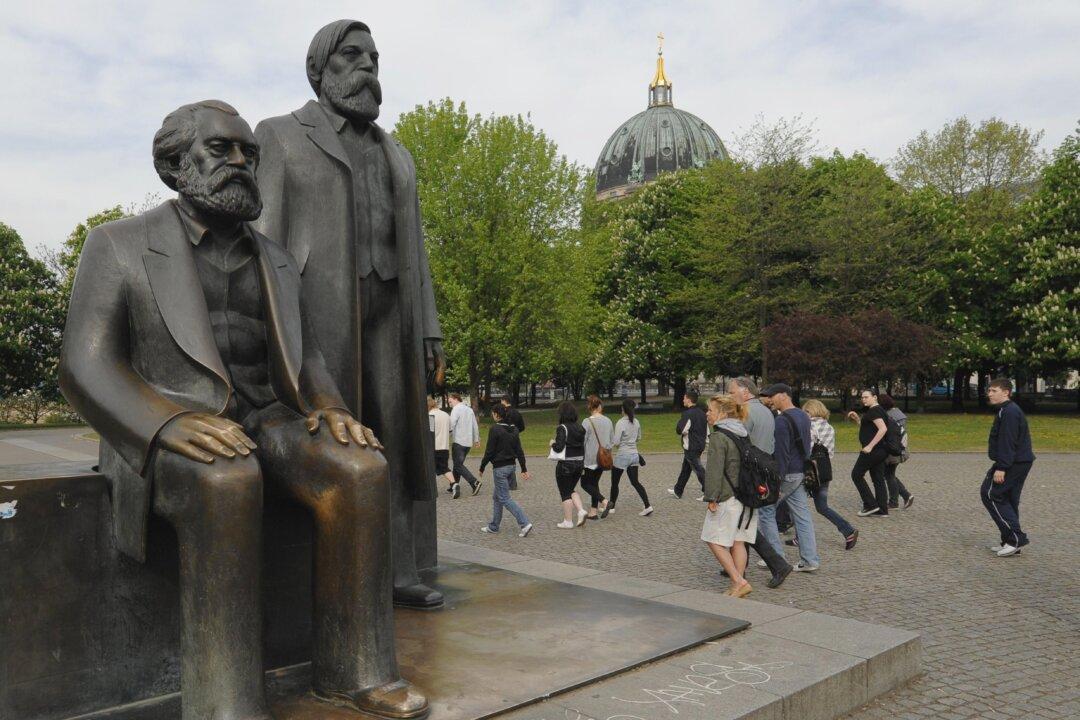“Men start revolutionary changes for reasons connected with their personal lives.” —Aristotle
The consequences of Karl Marx’s ideas stagger the imagination. His thoughts have shaped history. Empires have risen and fallen on his theses. Dreams and visions have bloomed and shattered. The surging tide of revolutions have washed the shores of continents because of this man, and the lives of millions of human beings have been altered—or ended—due to his ideology. In altered shape, his ideas continue to whisper through the corridors of institutions of higher education and even the halls of governance.






